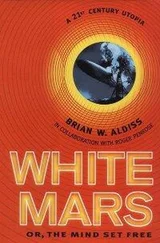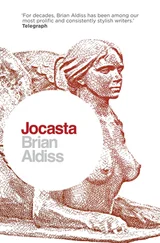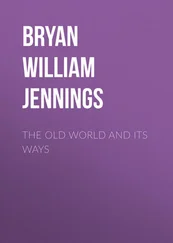‘The Sower of the Systems’ is based on a review of a Watts exhibition published in the Guardian . ‘The Fireby-Wireby Book’ appeared in a fanzine, Cidereal Times . ‘The Film Tarkovsky Made’ was first published in Foundation . ‘Kissingers Have Long Ears’ is based on an article written for Art and Story . ‘Spielberg’ began life as a lecture delivered at the ICA.
‘Sleazo Inputs I Have Known’ was published in Foundation . ‘It Catechised from Outer Space’ was published in New Review . ‘The Flight into Tomorrow’ appeared as an introduction to an edition of Harness’s The Paradox Men . The Burroughs article appeared in Punch . ‘Yes, well, but …’ appeared in Science Fiction Studies . ‘The Universe as Coal-Scuttle’ was developed from two reviews which appeared in the New Statesman .
‘California’ is based on an article in the Guardian . ‘Modest Atmosphere’ was broadcast in the BBC Third Programme, with George Macbeth and me playing all twelve voices, and later appeared in Encounter . Passages from ‘Cultural Totems’ appeared in New Review .
Two awards for criticism have been bestowed upon me. I am first holder of the James Blish Award for Excellence in Science Fiction Criticism (1977), presented for services to SF, with particular reference to my book Science Fiction Art (a revised version of the text of which is included here), and the introduction to Philip K.Dick’s Martian Time-Slip (which is included here). In 1978, the SFRA presented me with a Pilgrim Award in recognition of distinguished contributions to the study of science fiction, with particular reference to Billion Year Spree , and my anthologies.
To both these bodies, the British and the American, I offer my thanks for such encouragement. Come, gentlemen, what more fascinating subject for study is there?
Brian W. Aldiss
Oxford
December 1978
Ever Since the Enlightenment Contents Title Page THIS WORLD AND NEARER ONES BY BRIAN ALDISS Introduction and Acknowledgements Ever Since the Enlightenment James Blish and the Mathematics of Knowledge Dick’s Maledictory Web Why They Left Zirn Unguarded: The Stories of Robert Sheckley Nesvadba: In the Footsteps of the Admirable Čapek Verne: The Extraordinary Voyage Vonnegut: Guru Number Four Barefoot: Its First Decade The Gulf and the Forest: Contemporary SF in Britain Looking Forward to 2001 The Hiroshima Man From History to Timelessness The Hashish Club 1951: Yesterday’s Festival of the Future The Sower of the Systems: Some Paintings by G. F. Watts The Fireby-Wireby Book SF Art: Strangeness with Beauty The Film Tarkovsky Made Kissingers Have Long Ears Spielberg: When the Mundane Breaks Down Sleazo Inputs I Have Known It Catechised from Outer Space: Politics in SF The Flight into Tomorrow Burroughs: Less Lucid than Lucian ‘Yes, well, but …’ The Universe as Coal-Scuttle California, Where They Drink Buck Rogers Modest Atmosphere with Monsters Cultural Totems in the Soviet Union A Swim in Sumatra About the Author Also part of The Brian Aldiss Collection Copyright Конец ознакомительного фрагмента. Текст предоставлен ООО «ЛитРес». Прочитайте эту книгу целиком, купив полную легальную версию на ЛитРес. Безопасно оплатить книгу можно банковской картой Visa, MasterCard, Maestro, со счета мобильного телефона, с платежного терминала, в салоне МТС или Связной, через PayPal, WebMoney, Яндекс.Деньги, QIWI Кошелек, бонусными картами или другим удобным Вам способом. About the Publisher
There is no finality in the current state of the world. The present power blocs within which we pass our lives in this posture or that will be gone in two hundred years as surely as the Holy Roman Empire or Byzantium.
Europe’s security was threatened by Islam in the sixteenth and seventeenth centuries. The removal of that threat in the late seventeenth and early eighteenth centuries paved the way for a comparatively halcyon period for Europe (already prospering from its scientific discoveries and its ventures in the New World or round the globe) which we call the Enlightenment and the Age of Reason.
The Ottoman Empire was once as mighty as China. In July 1683, Ottoman armies stood at the gates of Vienna, and Christendom itself was besieged. After sustained fighting, the Turks retreated, leaving behind colossal hordes of treasure, as well as piles of coffee which, disseminated through coffee houses, helped to make Europe a more civilised place. From this battle dates the rise to power of the Habsburg Empire.
A distinguished part in the battle for Vienna was taken by Prince Eugène of Savoy, a great general who was later to play a larger and more decisive role in the fight for the integrity of Europe.
If you sail down the Danube from Vienna, you come eventually to a place where the river flows round a dramatic outcrop of rock. Standing on top of this rock is a great fortress with green roofs. You can enter the fortress nowadays and eat an excellent meal in its chambers. This is Petrovaradin; before the country became Jugoslavia, these lands belonged to Austria, and the fortress was Peterwardein, but wienerschnitzel has given way to razniči and hajdučki čevap . Here, in 1716, Eugéne and his army defeated a great Turkish force, killing six thousand of them. The spoils were enormous, and enriched the European imagination as well as the pockets of Eugène’s men. Eugène himself retained the Grand Vizier’s tent, which was sumptuously decorated in gold and contained many apartments; it was so large that five hundred men were required to pitch it.
Sail a little farther down the Danube. Where it meets its tributary, the Sava, Belgrade stands, set in a great curve of the river, now a modern capital, once an Ottoman fortress. There, almost exactly a year after his victory at Peterwardein, Eugène of Savoy inflicted another defeat on the Ottoman Power.
There is never security without arms. Following the Turkish defeat, Belgrade itself, Hungary, sections of Bosnia and Serbia became part of the Habsburg domains, and the menace to western Europe was dispersed. Over the mounds of corpses and coffee, the way for the enormous progress of the eighteenth century was open – though of course the European states still squabbled amongst themselves.
The Enlightenment and the Age of Reason sought for balance, the kind of balance enshrined in the great houses of the period, with East wing balanced against West, in the rapid advance of justice and civil order, in the antitheses of Johnsonian prose, as well as in the paradoxes and heroic couplets of Pope’s poetry. Humanism progressed, science progressed, all arts elaborated themselves – not least in music, where the pale counterpoint of Domenico Scarlatti was transformed into the complex statements of Haydn, Mozart and Beethoven. And the industrial revolution gathered in a tide which still floods round the remotest shores of the world.
There now appears something slightly one-dimensional about the world of the Enlightenment, so greatly has social modification worked since then. In its peaceableness, its reasonableness, the Enlightenment lacks our painful perspectives on human nature. We can no more resurrect its values than read the poems of Ossian. Captain Cook was allowed to sail where he would in time of war, unmolested by his enemies, who recognised the value of his scientific research. G.B.Tiepolo painted the Queen of the Nile in High Renaissance costume, being concerned not with anachronism but with what looked best. In the eighteenth century you dressed up for science, as you did to have your portrait painted.
Читать дальше










